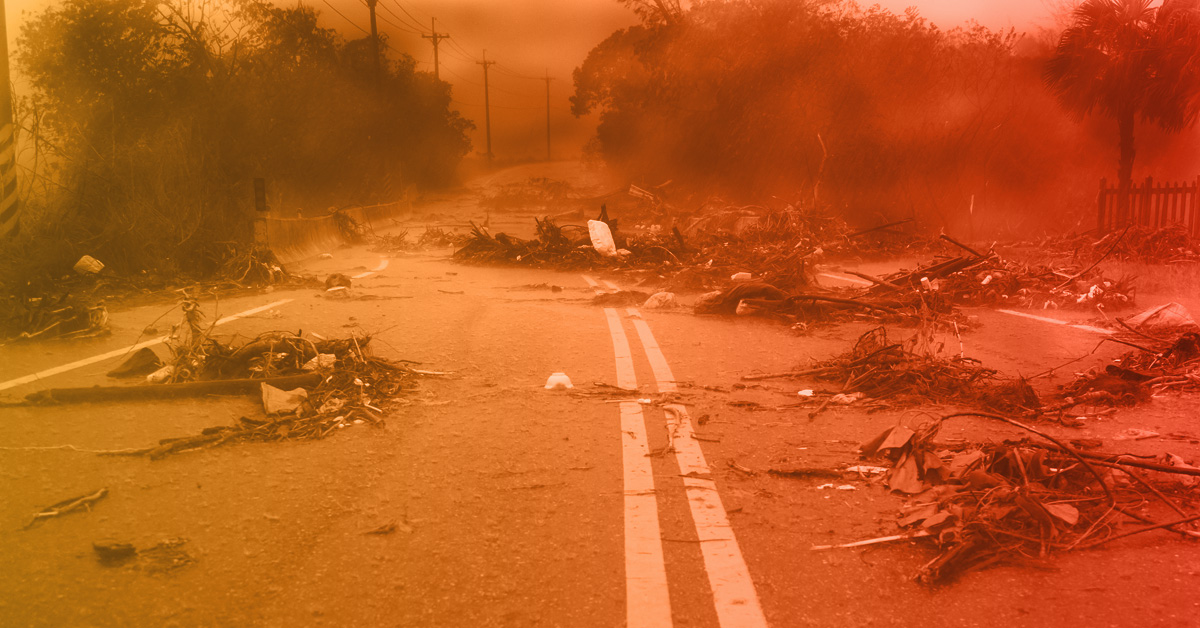Want More?
Share your email address to receive the latest Ciminelli company news, real estate industry insights, and announcements.

Property Managers are a first line of defense between your commercial property and the elements during a severe weather event. Management teams play a crucial role in ensuring the safety of tenants and resilience of commercial properties, especially when it comes to preparing for severe weather events. From hurricanes and floods to blizzards and wildfires, severe weather can wreak havoc on commercial properties, leading to costly damages and disruptions. These weather events are increasingly prevalent in the United States and educating your teams on best practices can make a big difference. Ciminelli’s commercial portfolio covers 7 states and seasonally is subject to various weather hazards. We asked our pro’s to put together their thoughts on the essential steps property managers should take to prepare a commercial property for severe weather.
Risk Assessment
The first step in preparing for severe weather is to conduct a thorough risk assessment. Property managers should identify the specific weather risks associated with their geography, such as hurricanes in coastal areas, tornadoes in tornado-prone regions, wildfires in dry climates, and blizzards in the Great Lakes states. By understanding the potential hazards, property managers can develop a targeted plan for preparedness. Historical data can be useful in understanding the threats as well as the potential areas of exposure in your portfolio. Hard hit areas are generally well documented locally and local news coverage and building expense records can reveal useful information as you begin to formulate a plan for preparedness.
Develop a Severe Weather Emergency Plan
Once the risks are identified, property managers should create a comprehensive severe weather emergency plan. This plan should include:
Communication: Establish clear lines of communication with tenants, local emergency services, maintenance team leads, and potential vendor partners. Ensure that everyone knows how to reach each other during severe weather events and the line communication should follow.
Evacuation procedures: Plot and communicate evacuation routes and assembly points for tenants and staff. Practice evacuation drills periodically to ensure everyone’s safety. Many municipalities will dictate routes, explain road closures, timing, etc. An understanding of where to get that information in a reliable and timely manner should be done before an emergency develops. It may also be helpful to establish shelter in place protocols should evacuation not be possible. Similarly, if your portfolio includes parking structures, lots, or other attributes that could be helpful to municipal emergency teams you should communicate your willingness and ability to make these available.
Emergency supplies: Maintain an emergency supply kit on-site, including first aid supplies, flashlights, batteries, blankets, and non-perishable food and water. These supplies can be crucial in case of power outages or extended stays in the office.
Property protection: Property Managers should develop strategies to protect the property, such as reinforcing windows and doors, securing loose objects, and having sandbags on hand for flood-prone areas. Vendor partners may be hard to come by as everyone prepares for impending severe weather. Reach out to your partners in advance and have a plan to ensure you’re not without the resources you need to protect the property.
Insurance Review
Property managers should regularly review and update their property insurance policies to ensure they provide adequate coverage for severe weather-related damages. Consult with insurance professionals to understand the terms and conditions of the policies, including coverage limits, deductibles, and the process for reporting a claim.
Routine Property Maintenance
A well-maintained property is often the best defense against severe weather. Property managers should schedule regular inspections to identify and address potential issues, such as loose roofing materials, damaged drainage systems, or deteriorating building materials. Routine maintenance helps reduce the risk of severe weather-related damage.
Disaster Recovery Partnerships
Establish partnerships with disaster recovery and restoration companies and municipal emergency response teams ahead of time. Having these relationships in place ensures a swift response in the aftermath of a severe weather event. These professionals can assess and mitigate damage quickly, helping to minimize downtime and repair costs.
Tenant Communication
Strong communication with building tenants is critical. Property managers should inform tenants about their severe weather plan, evacuation procedures, and emergency contact information well in advance. During a severe weather event, provide regular updates to keep tenants informed about the situation and any actions they should take. Seasonal updates will ensure contacts are refreshed and information is being processed.
Emergency Power and Backup Systems
Invest in emergency power and backup systems, such as generators and uninterruptible power supplies (UPS), to keep critical systems running during power outages. Ensure that these systems are regularly maintained and tested to guarantee their functionality when needed. Vendor partners are often an excellent resource with the necessary tools and machinery at their disposal saving on ownership costs.
Looking Back
After a severe weather event has occurred, property managers should conduct a thorough assessment of the property to identify any damage and prioritize repairs. Timely action is essential to prevent further damage and get the property back to normal operations. Improvements in your preparedness planning are often most obvious at this time. Consider your communications, vendor partners, maintenance teams, and tenant response to understand where your plan needs attention.
Property managers play a vital role in preparing commercial properties for severe weather. By conducting risk assessments, developing emergency plans, maintaining the property, and developing relationships, you can enhance the readiness of your properties and safeguard the well-being of tenants. Preparation is key to minimizing damage and disruption in the face of severe weather, ensuring that commercial properties can weather the storm.